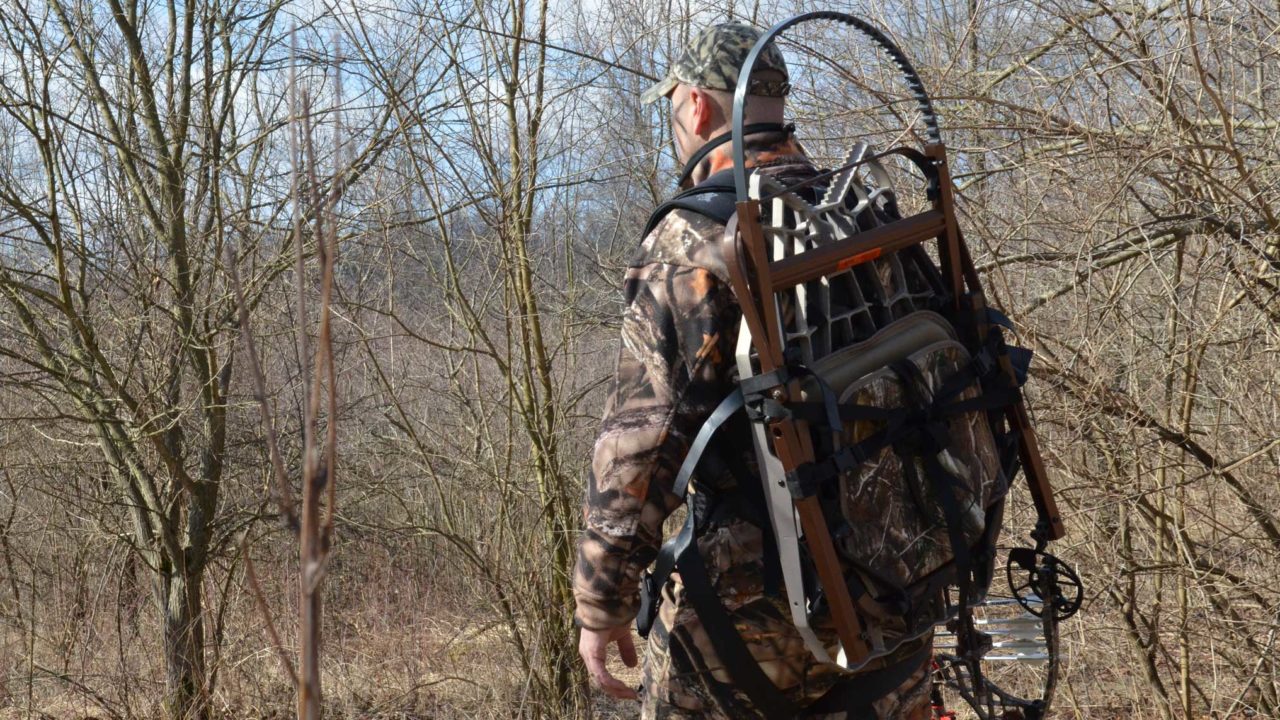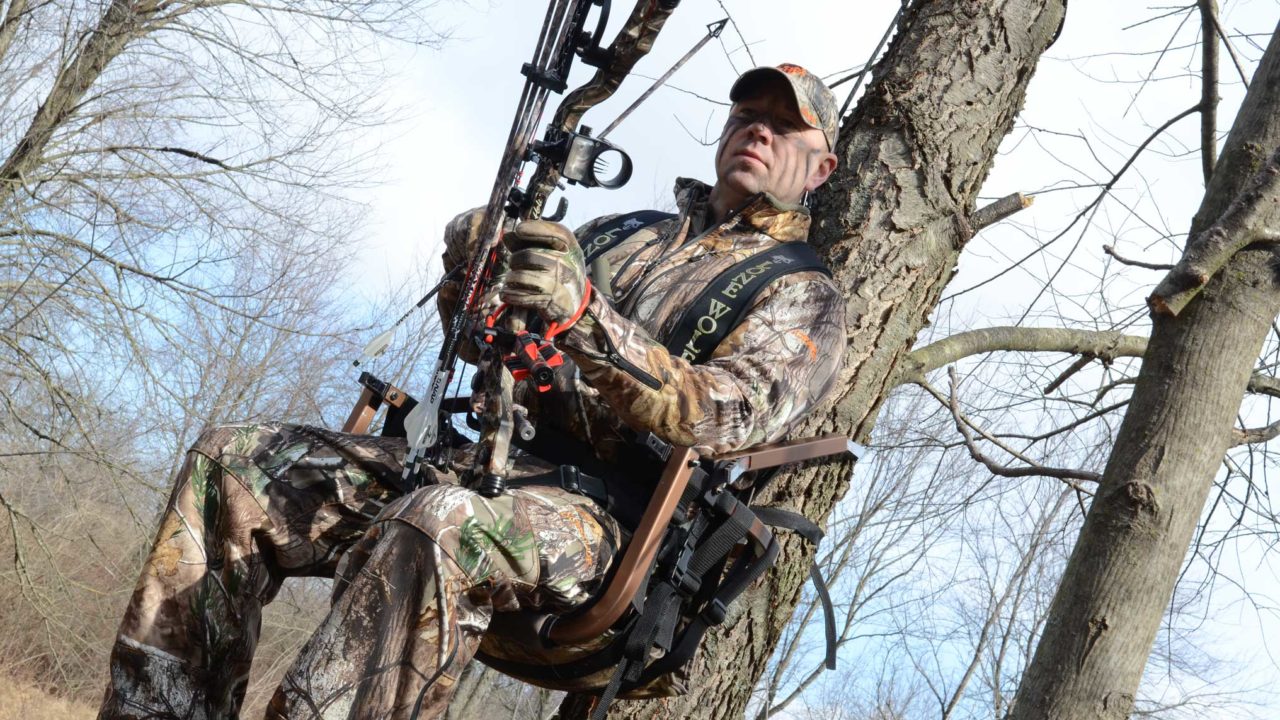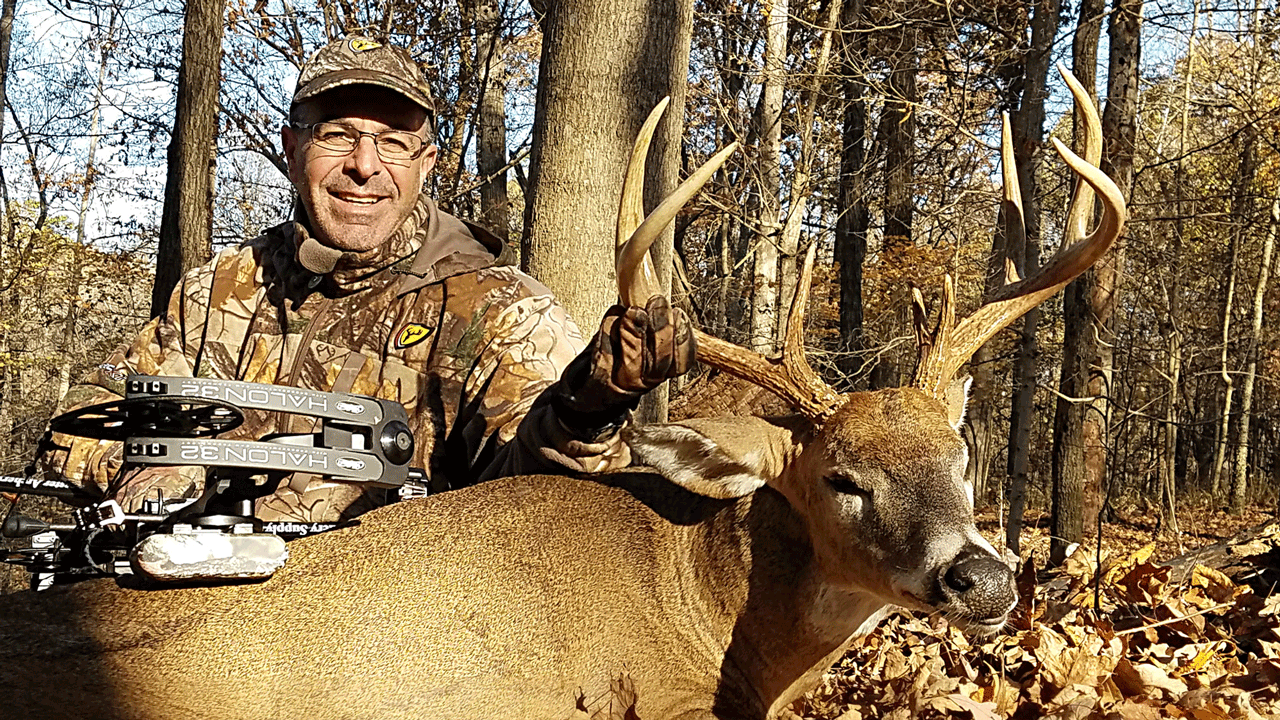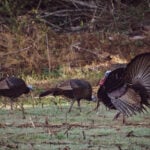According to the U.S. Fish and Wildlife Service, 11.5 million people went hunting in the United States in 2016. Just five years earlier, that number was 13.7 million.
In five years, our nation lost 2.2 million hunters.
Some hunters might look at that number and jump for joy.
“Yes! Public land is crowded. It’s getting harder and harder to gain access to private property. Fewer hunters means less competition for me!”

Less hunters in the woods might sound good at first, but is it good for the future of hunting?
How quiet is your stand as you make the walk in to the woods?
But is a decline in hunter numbers good for anyone? Is it good for the sport? Consider this. The less hunters there are, the less of us there are to protect what we have. The anti-hunting movement in the U.S. is real, and it’s growing.
The 11.5 million Americans who hunted in 2016 represented just 5 percent of the total U.S. population. That leaves 95 percent who aren’t involved in the sport. Not all of them oppose hunting, but it’s fair to say hunting doesn’t mean enough to them to buy a license and hit the woods.
A 2015 survey done by Marist Poll – a survey research center in New York – found that 26 percent of Americans believe hunting should be illegal, and 33 percent disapprove of it, but don’t think it should be banned. Those are startling numbers. Remember, only 5 percent of the nation actually went hunting in 2016.

Hunting is so much more than simply a sport. It’s a management tool that has proved to be the most effective means of wildlife balancing numbers.
While some hunters are salivating as our numbers drop, dreaming of big bucks roaming uncrowded public lands, simmering in the background is a growing threat to the entire sport. So one year, you might find you have a swath of state land all to yourself, and the next year, hunting could be illegal altogether. Or maybe you get a few years of unspoiled hunting, but the practice becomes illegal by the time your kids are ready to give it a try.
That might seem far-fetched to those of us who hunt, because we know it’s not just a sport. It’s the primary tool used by wildlife agencies to manage and control wildlife populations. I mean, how many car wrecks would there be across the country if deer hunting suddenly became illegal?
But not everyone thinks like that. There are Americans who believe killing an animal on purpose is wrong. Period. Science be damned.
Just take a look at the state of New Jersey. Recently elected state Gov. Phil Murphy has said he plans to kill the state’s annual bear hunt beginning this year. He’s sticking to this, even as biologists with the New Jersey Division of Fish and Wildlife have told him hunting is the only effective way to keep bear numbers in check.
The biologists’ evidence was amassed over eight years of hunting during the tenure of former Gov. Chris Christie, who reinstituted bear hunting following years of banishment under his predecessor. The biologists can show that during the eight years of bear hunting, complaints and problems were drastically reduced. None of that matters. Voters elected Murphy into office. He trounced his opponent, Lt. Gov. Kim Guadagno, who had promised to continue the bear hunt.

Hunter numbers ensures that hunters have a voice when it comes to speaking up for hunting opportunities.
In Pennsylvania, hunters have been pushing for years to expand Sunday hunting beyond crows, foxes and coyotes. They want to chase deer, turkeys, bears and everything else on Sunday. But in Pennsylvania, hunters make up just 7 percent of the population. (And that number is falling.) Sunday hunting is controlled by the state Legislature – not the Pennsylvania Game Commission. There is enough opposition to the expansion of Sunday hunting among the 92 percent of non-hunters in Pennsylvania that state lawmakers have repeatedly refused to even consider it.
These are real impacts of a decline in hunter numbers versus a rise in anti-hunting. And so we ask again – is a decline in hunter numbers really good for hunters and hunting in the long run?

 By
By 



